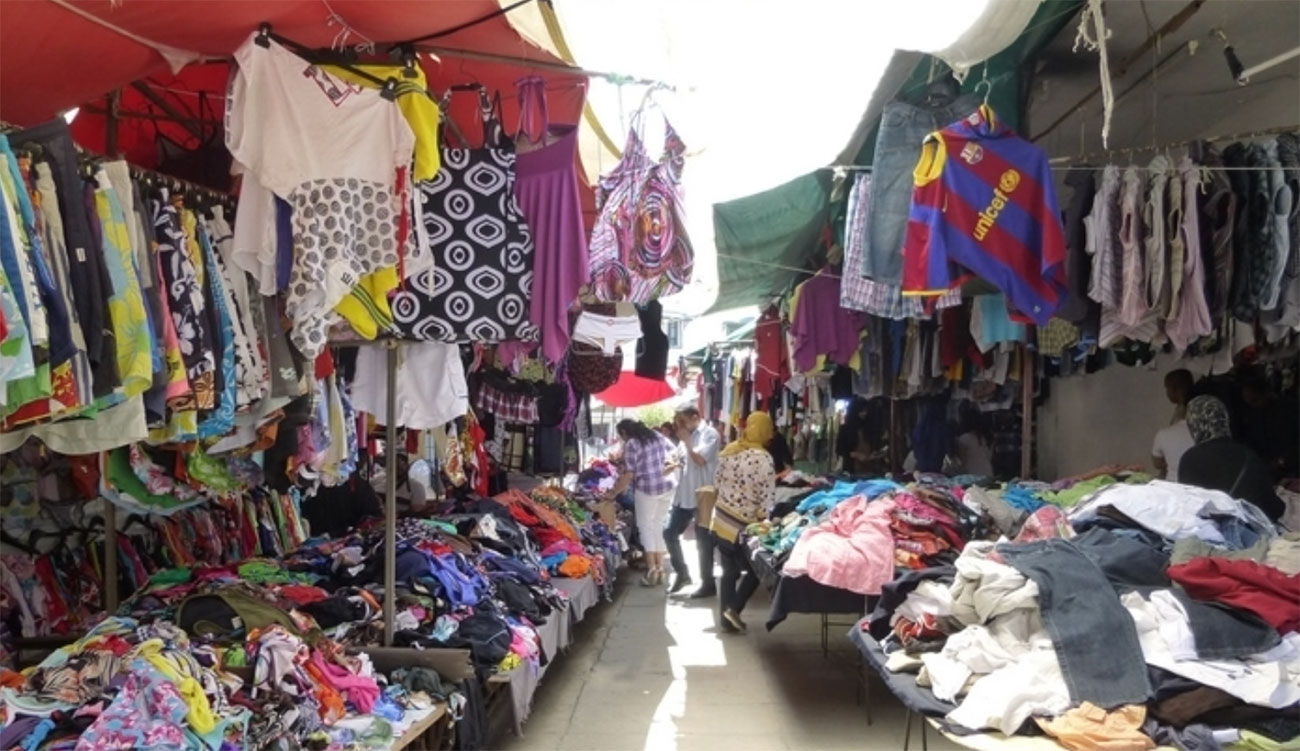2024-11-22 12:08:00
The second-hand clothing sector in Tunisia, although little known and often underestimated, occupies a predominant place in the informal economy, employing around 200,000 people across the country.
Among these workers, around 8,000 are higher education graduates, a figure which reflects the complex reality of the Tunisian labor market, where young graduates turn to informal sectors due to the lack of opportunities in their specializations.
The observation was made by Sahbi Maâlaoui, president of the national union chamber of thrift store wholesalers, during his intervention on National Radio, this Friday, November 22, 2024.
According to him, this sector, which brings together nearly 54 specialized companies, is going through a difficult period, with only 34 of them in activity. The other 20 closed due to heavy financial penalties or incidents such as fires. This situation highlights a worrying fragility, while the second-hand store, both a source of income for thousands of families and opportunities for young graduates, is struggling to stay afloat.
Thrift shopping, which includes the second-hand clothing trade, is a growing sector on a global scale, due to its sustainable and economical nature.
In Tunisia, it constitutes a lifeline for many households, while offering an alternative to disposable and polluting fashion. However, despite its importance for the informal economy and the jobs it generates, it suffers from an obsolete and often inadequate legal framework.
Maâlaoui thus underlined the urgency of a revision of the legislative texts governing this area, in order to allow traders to develop their activities beyond their governorate of origin. This geographical constraint considerably limits the growth potential of the sector, despite the fact that many Tunisians are ready to invest in the sale of second-hand clothes in regions where the supply is low.
The second-hand clothing sector also stands out for its export aspect, with five companies focusing their activities on international markets. However, local economic and legislative challenges are hampering the growth of these companies, despite their export potential which could not only boost the sector, but also contribute to improving the country’s trade balance.
The challenge is now high: how to reform a vital sector while integrating it further into the formal economic fabric? Calls for a review of laws and a modernization of the regulatory framework are increasing, but the future of second-hand clothing in Tunisia will also depend on the capacity of the authorities to provide an environment conducive to the growth and sustainability of this sector, often ignored, but nevertheless essential to the economic life of the country.
1732285275
#Tunisia #employees #thrift #stores #including #graduates

